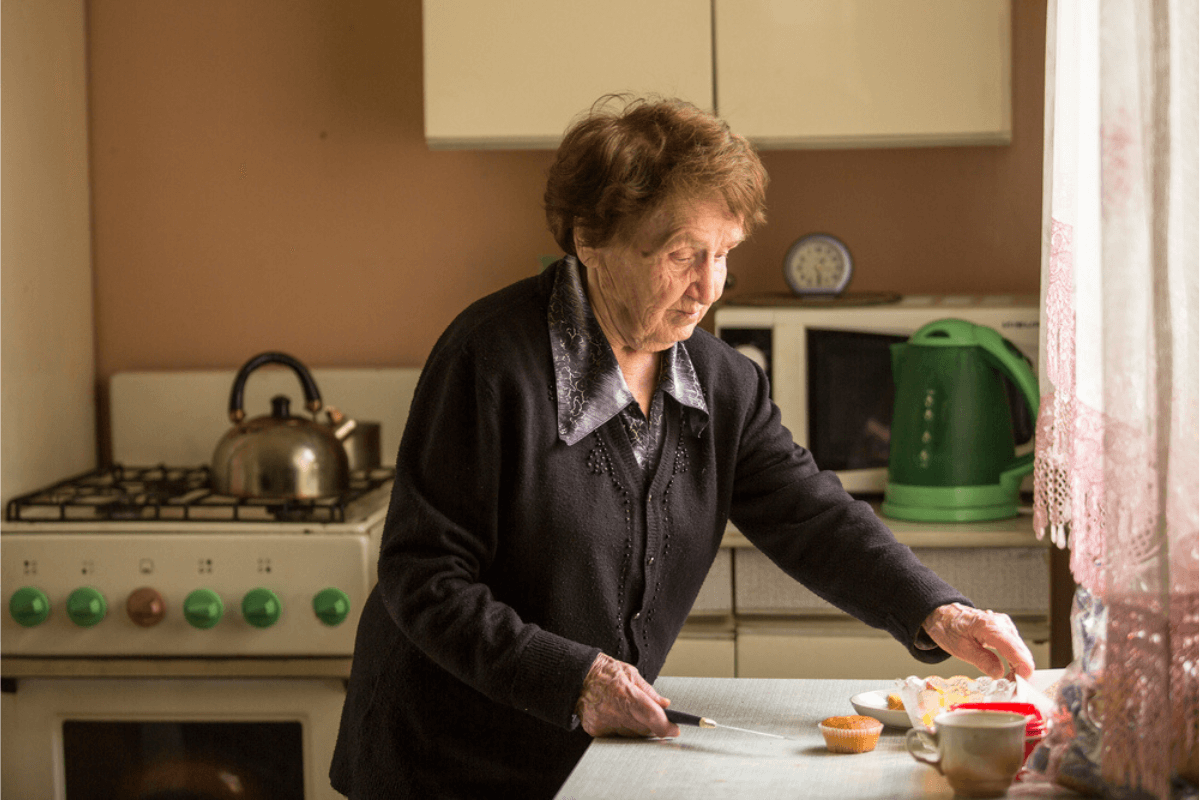All posts
Is my lonely older loved one socially isolated?
Are you worried that an older loved one is lonely? Our relationships are critical to our health and wellbeing. Staying socially connected can help us live longer, happier lives. Social isolation includes a lack of social contacts or relationships, little to no engagement with other people, and limited opportunities for socialising. Older adults are at […]


Are you worried that an older loved one is lonely?
Our relationships are critical to our health and wellbeing. Staying socially connected can help us live longer, happier lives.
Social isolation includes a lack of social contacts or relationships, little to no engagement with other people, and limited opportunities for socialising.
Older adults are at high risk for social isolation due to factors like limited mobility, loss of family and friends, and living alone. Social isolation can lead to loneliness, which can be detrimental for elderly folks.
In this blog post, we’ll review how social isolation causes loneliness and is dangerous for older people. Whether it’s your grandparent, your elderly parent, or your older neighbour or family friend, we’ll share some ideas on how you can help a socially isolated older person.
Who is at risk of social isolation?
One in five Australian seniors are socially isolated; this rises to one-third of adults living in residential aged care.
Older folks are at increased risk of social isolation if they:
- Live alone
- Are an immigrant
- Struggle financially
- Identify as LGBTQIA+
- Have impaired vision
- Have impaired hearing
- Face a language barrier
- Are retired or not working
- Are a victim of elder abuse
- Are widowed or unmarried
- Live in residential aged care
- Live in a rural or remote area
- Have no children or grandchildren
- Have limited mobility or a disability
- Have friends who have passed away
- Have limited access to transportation
- Experience discrimination where they live
- Have busy adult children and grandchildren.
How does social isolation affect older people?
Social isolation can cause people to feel lonely. Social isolation and loneliness can seriously impact an older person’s mental and physical health, quality of life, and longevity.
When seniors are socially isolated, they face:
- A 32% increased risk of stroke
- A 50% increased risk of dementia
- An increased risk of premature death
- Higher rates of depression and anxiety
- Higher rates of suicide and suicidal thoughts.
How to help a socially isolated older person
It’s up to all of us to help the older people in our lives.
If you’re worried that a senior in your life is lonely, there are a few ways you can help.
Here are some ways you can help an older person who seems lonely:
- Visit regularly
- Call them regularly
- Offer to help with their shopping
- Introduce them to other seniors you know
- Regularly bring them a home-cooked meal
- Help them find a local hobby group via Facebook or Meetup
- Invite them to join you on outings or for dinner at your home
- Teach them how to use their computer, tablet, or smartphone
- Offer them a lift to the hairdresser, the library, or appointments
- Check your local neighbourhood centre for any senior groups or events
- Offer to drive them to and from local senior events or local senior groups.
The Senior Social Connect Program offers groups and events specifically aimed at reducing social isolation in older Queenslanders in Sunshine Coast and Gympie.
The Queensland Government website has a list of social groups and activities for seniors.
Relationships Australia Queensland’s Senior Social Connection Program helps older Queenslanders in Sunshine Coast and Gympie to stay connected.
If you or an older person you know is feeling lonely or socially isolated, our Senior Relationships Services are here to help. Our experienced counsellors can help you explore your concerns and possible solutions in a safe and supportive environment.
You can learn more about our Senior Social Connection Program here or by calling 1300 063 232.
Want to receive updates on our Senior Relationship Services blog posts?
Back to all posts